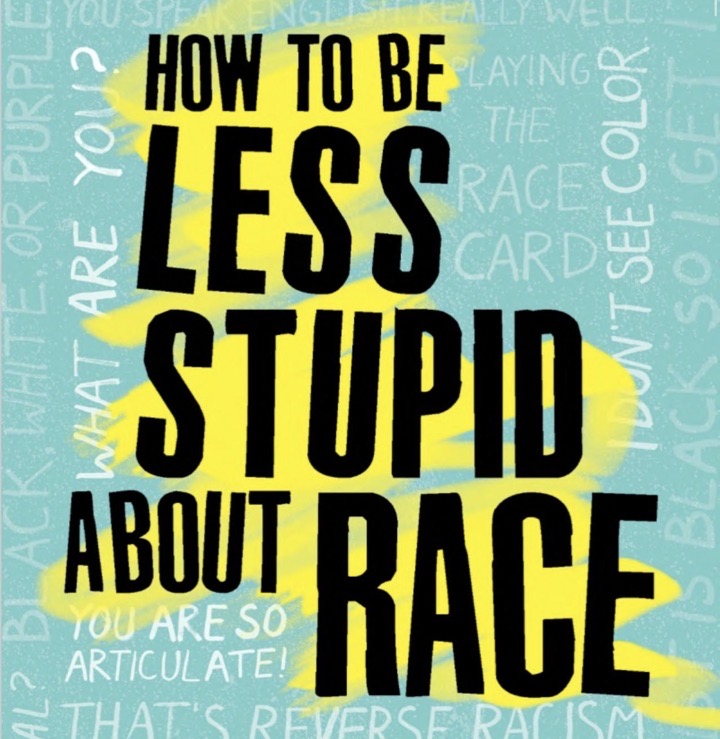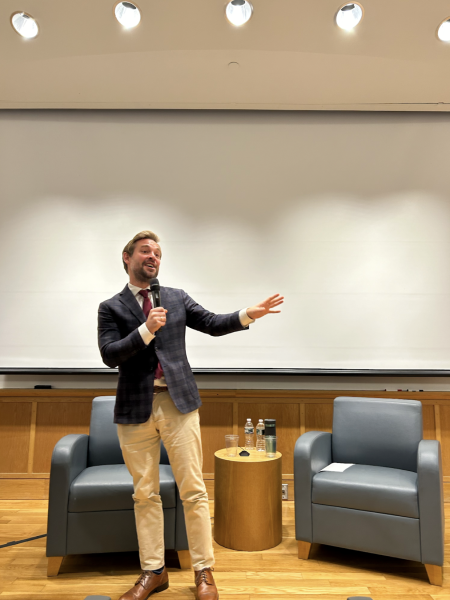University Invites Sociologist Dr. Crystal Marie Fleming For Race And Gender Speaker Series
The University welcomed State University of New York (SUNY) Stony Brook Sociologist Dr. Crystal Marie Fleming to kick off a race and gender speaker series titled “Where do we go from here?: Feminist Approaches to Anti-Blackness.” The thematic series, having started on Thursday, Sept. 3, is designed to investigate the state of race relations in the United States and elsewhere through an explicit anti-Black feminist lens. The series is fully virtual and is co-sponsored by Africana and Latin American Studies, Hancock Commons and Women’s Studies, with multiple other campus partners.
During the Zoom conference with roughly 200 participants, Fleming explored the tumultuous and sobering experiences of unequal race relations that have occurred in the U.S. since its inception. The focus of Fleming’s remarks addressed the nation’s social and political climate since late May of 2020, when the unjust killing of George Floyd sparked national attention and international protests of an unprecedented scale. Fleming also provided analysis surrounding the misconceptions, opponents and supporters of the call to “Defund the Police” that has gained sizable momentum since the summer.
According to Fleming’s website, “[she] is an internationally recognized expert on racism and anti-racism who empowers audiences to confront and challenge white supremacy.” Having attended and earned degrees from both Harvard University and Wellesley College, Fleming currently serves as a Professor of Sociology and Africana Studies at SUNY Stony Brook. Fleming is also the author of the 2018 critically acclaimed book “How to Be Less Stupid About Race: On Racism, White Supremacy and the Racial Divide.”
Associate Professor of Sociology Alicia Simmons introduced Fleming for the first event in the series, and Director of the Women’s Studies Program and Associate Professor of Peace and Conflict Studies Susan Thomson helped spearhead the speaker series and bring notable scholars like Fleming to campus.
After Thursday’s event, Thomson expressed eagerness to see how the community will respond to future speakers. She explained that sophomores and juniors will be interviewing all of the speakers in this series and converting the audio into podcast episodes for the entire community.
“Fleming definitely challenged some of what students think they knew or understand. A key goal of the WMST academic program is to have students unlearn the racial and gender stereotypes that shape American society,” Thomson said.
The Women’s Studies programs usually hosts in-person Brown Bag events as a way to invite speakers to campus but had to adapt their strategy this year due to the COVID-19 pandemic. According to Thomson, the racial climate of the summer is what prompted the Women’s Studies Program to create a speaker series focused on race and gender.
“The experiences and scholarship of Black women are often not taken seriously, so the primary goal of the series was to address this problem and bring Black feminist scholarship to the academic forefront,” Thomson said.
Junior Flora Zhang attended the event and was especially interested in Fleming’s remarks on the connection between racism and suburbia.
“There was something that Dr. Fleming said that particularly stuck with me, and it was that an America with defunded police looks like a suburb. Defunding the police is essentially investing money into resources and programs that can help uplift Black communities. To show that there are already communities in America with systems like this is a simple but powerful statement that makes people realize that the movement to defund the police is reasonable and even necessary,” Zhang said.
First-year Robyn Landes said Fleming’s discussion of abolition as opposed to reform when fighting against systemic racism stood out to her, and that the talk made her feel hopeful for the future.
“It is easy to feel hopeless when Black people continue to die at the hands of police. However, focusing on police abolition is an act of optimism that forces people to imagine what the future can look like without these systems of oppression. Fleming encouraged the audience to creatively visualize the world we want to see,” Landes said. “What kinds of changes are we willing to make that will lead to an equitable future?”
Wynter Schnell is a junior from Pound Ridge, New York concentrating in political science with a minor in anthropology. He’s served as a news reporter...







